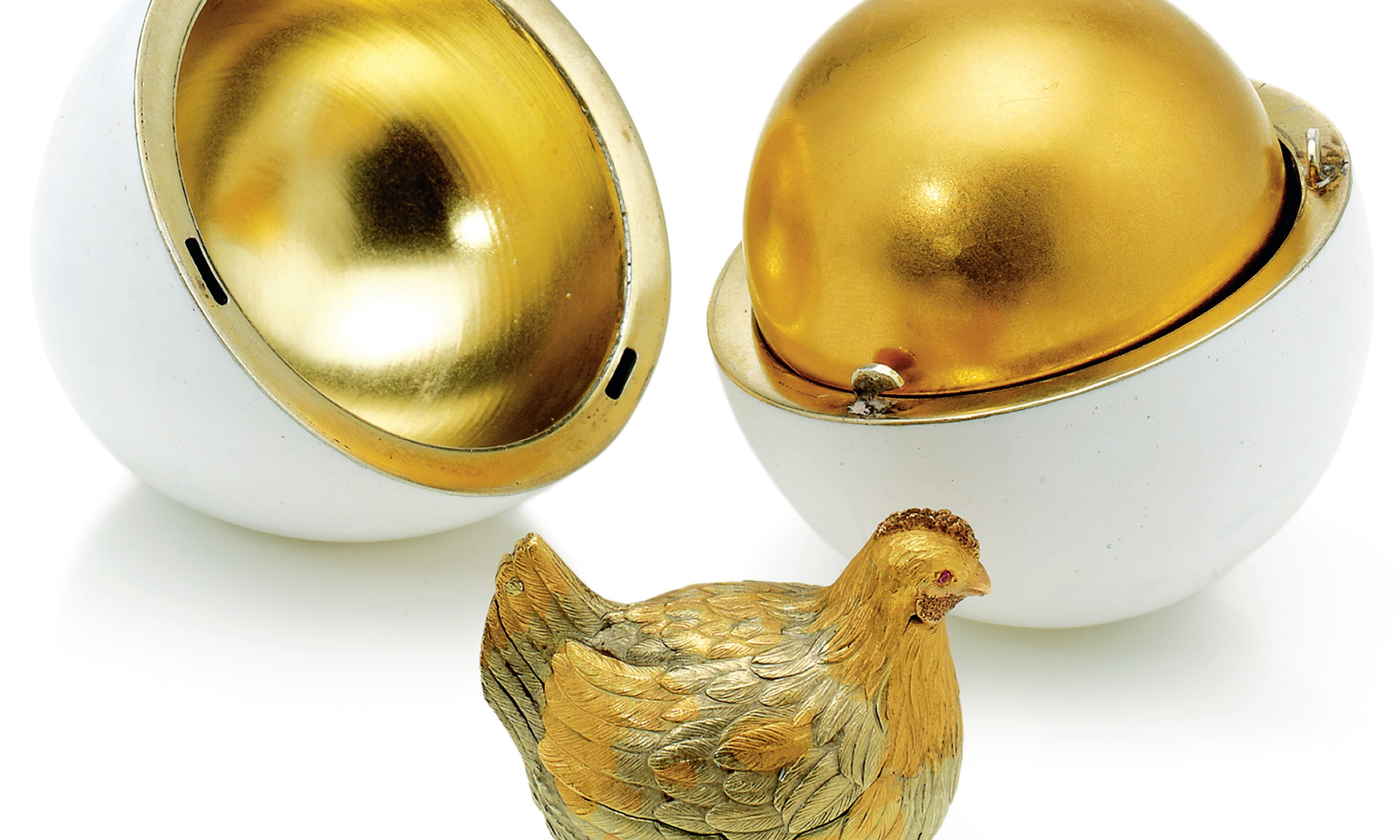The Hen Egg (1884-85) by Carl Fabergé was loaned to the V&A from the foundation of Viktor Vekselberg. Courtesy of V&A
The UK government has placed sanctions on the billionaire Viktor Vekselberg whose Link of Times foundation has loaned a major work to the exhibition Fabergé in London: Romance to Revolution at the Victoria and Albert Museum (V&A) in London (until 8 May). The foundation lent to the UK museum the first imperial Easter egg, known as the Hen egg, made in 1884-5 for Tsar Nicholas’s father, Alexander III, as a present for the Empress Maria Feodorovna.
The sanctions list states that Vekselberg will now be "subject to an asset freeze and a travel ban under the Russia regulations”. According to Forbes, “the Ukrainian-born aluminium baron made his first million selling scrap copper from worn-out cables”; his net worth is estimated at $9.3bn.
Ukrainian-born Russian oligarch Viktor Vekselberg has been sanctioned by the UK government. © Swissinfo.ch
Asked if the government's decision will affect the show in any way, the V&A says in a statement: “Our loan agreement is with the Link of Times Foundation and was made in good faith between two cultural organisations. We will work closely with the Department for Digital, Culture, Media and Sport (DCMS) and the lenders to ensure the safe return of all objects at the end of the exhibition.”
Vekselberg bought the Hen egg in 2004, as part of the collection of Fabergé works once owned by the late American media magnate Malcolm Forbes. He owns nine Fabergé imperial eggs, which are usually on display in the Fabergé Museum in the Shuvalov Palace in St Petersburg. According to the museum website, “the Link of Times Foundation was established for the repatriation of Malcolm Forbes's Fabergé collection and other once-lost items of cultural importance”. The museum did not respond to a request for comment about the UK sanctions.
Earlier this month, the Tate cut ties with Vekselberg after the billionaire was sanctioned by the US and the European Union. Vekselberg was an honorary member of the Tate Foundation, a fundraising charity. In a letter sent by Vekselberg to Tate, seen by the Financial Times, he said that he was “genuinely happy [his] donations have contributed to the development of cultural ties”. He added: “I will continue to do everything I can to accelerate the advent of peace.” The US government said that Vekselberg had maintained “close ties” with President Vladimir Putin and identified as “blocked property” his private jet and yacht.
Many works in the V&A Fabergé show are on loan from Russian museums including the Moscow Kremlin Egg (1906), which comes from Moscow Kremlin Museums along with two other eggs: the Alexander Palace Egg (1908), which is decorated with portraits of Tsar Nicholas II and his family, and the Romanov Tercentenary Egg (1913). A V&A spokeswoman told us that “the V&A remains in contact with the Department for Digital, Culture, Media & Sport, DCMS, on the evolving situation in the Ukraine. To date, we’ve had no requests to return loans from Russian institutions.”
UPDATE (20 March): The Art Newspaper understands that another work belonging to Vekselberg, a desktop cigar box (1909-13), is also in the V&A exhibition.
UPDATE (21 March): A spokeswoman for the Fabergé museum says: "The Fabergé masterpiece from St. Petersburg's Fabergé Museum was accompanied by the Letter of Comfort from the UK Department for Digital, Culture, Media and Sport (24 September 2021) with the guarantee of immunity and protection."

